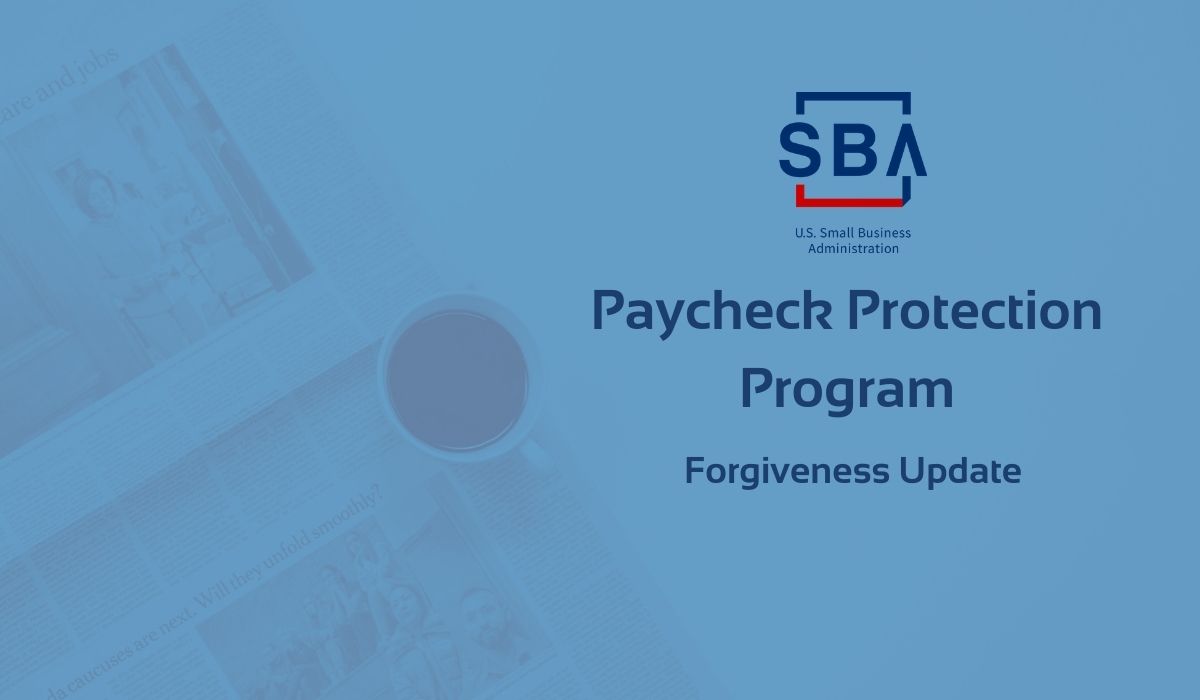
The SBA released an Interim Final Rule for the Paycheck Protection Program (PPP) on August 24th, 2020. The rule creates forgiveness limitations and/or clarification on limitations in three areas. The full IFR goes into full detail of the treatment of owners and forgiveness of certain non-payroll costs.
Here are the key highlights to help you stay updated.
Wage Gap Forgiveness Limitations
If owners of a C or S Corp have less than a 5% stake in ownership, that owner is not subject to the owner-employee wage cap previously stated for forgiveness. The cap was set at $15,385 for an 8-week covered period and $20,833 for the 24-week period. Essentially, this kind of minority ownership would be treated like any other employee and wages up to $46,154 would be considered forgivable under the 24-week covered period ($15,385 under the 8-week covered period).
Mortgage & Rent Forgiveness Limitations
The IFR gave four different examples of rent or mortgage payments and the acceptability of these types of payments for forgiveness. Examples had to do with sub-leasing, home office, and shared space arrangements. The forgiveness on these rental expenses for a business only applies to the pro-rata space and utilities their operating company uses, or what was previously used as a rental expense on prior returns in the case of a home office expense.
Related Party Rents
Finally, the IFR discusses related party rents and says that it has to meet two-part criteria in order to be forgivable. First, the forgivable portion of rent cannot exceed the mortgage interest that the related party paid, and second, there must be a lease agreement in place prior to February 15th, 2020. The IFR states:
”PPP loans are intended to help businesses cover certain non-payroll obligations that are owed to third parties, not payments to a business’s owner that occur because of how the business is structured.”
As PPP Rules Change, MRPR is Here to Help
The PPP continues to be a work in progress. Because of the speed of roll-out, the rules of forgiveness keep changing after the fact. Administration of the forgiveness process is still stalling on the banking level according to the uncertain and changing nature of forgiveness, but things are becoming more clear over time. As always, MRPR stands ready to assist on these new rules or other uncertainties you face as a business owner, COVID-related, and otherwise. Please contact us for more information.
{{cta(‘e3e3bcde-f698-4ffd-8ece-93b1938031f4′,’justifycenter’)}}